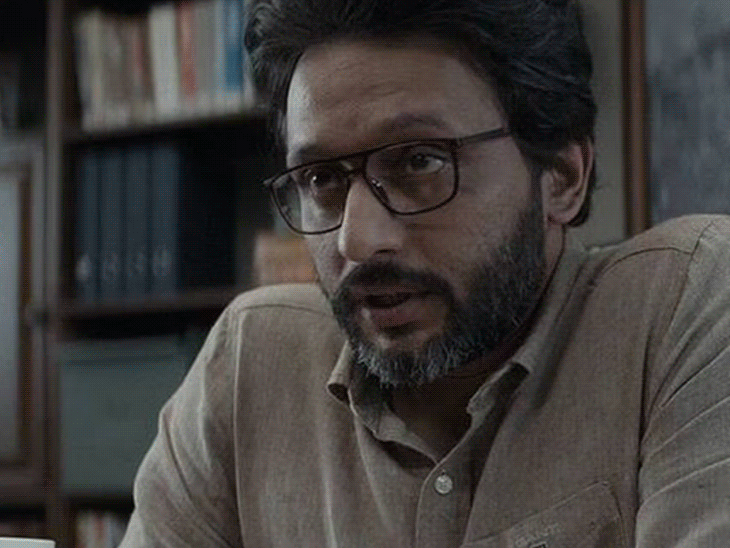1 hour ago
- Copy link

Shekhar Gupta, Editor-in-Chief, ‘The Print’
India has been formally saying that ‘Operation Sindoor’ has not been completed yet. Both countries are seeing it as a type of trailer or consider it a pre -preparation of the next battle. The record of this subcontinent says that this is not the best situation. The battle in Kutch on 9 April 1965 is already present as an example of this.
In it, both sides had a ceasefire, but after five months, the entire war broke out. At that time, Pakistan started the war taking a wrong lesson from Kutch. Hopefully, after this, he must have got goodwill in the last six decades.
It is very difficult that Pakistan confess its defeat. Bangladesh’s liberation or surrender in Kargil in 1971 is an example of this. If there is any situation as less than the decisive defeat, then you should bet that they will declare it as their victory. And once he comes in the mood that ‘Look, we won the battle’, then you can expect that he will come back soon.
Recently, one of the three Indian Army should take the deputy chief. General Rahul Singh discussed the lesson and future signs from this struggle. It is a good thing that at least one side is not celebrating the unintelligent celebration of victory, but is thinking about the future.
The same thing happened after the Kutch war. India had noticed the lesson from Kutch with a lot of understanding and realistic perspective and as a result, it came out that the battle after that fight led to a strategic victory.
The strategic victory for India was because Pakistan started a war for a goal (occupying Kashmir). That goal was not allowed to achieve him and was forced to return. The deadlock for Pakistan, which took the initiative of the war, was India’s victory.
India was preparing then how to retaliate on Lahore and Sialkot if Pakistan increased the pressure on Kashmir. It is recorded in the record that in the last days of summer after the ceasefire in Kutch, the then Defense Minister Y.B. Chavan, Home Minister Gulzarilal Nanda held a meeting with senior army commanders at the headquarters of XI Corps in Jalandhar and considered a plan to open new fronts in Punjab, Pakistan if needed.
The scheme, called ‘Operation Relle’, was under consideration for months. India made this preparation after a lesson from Kutch. To get accurate information about this episode, I was the Western Army Commander at that time. I would advise to read General Harbakhsh Singh’s book ‘War Dispaches’. At that time, Jammu and Kashmir was also involved in the Western Army Command. We often forget the battle of Kutch. However, it was longer than the 87 -hour ‘Operation Sindoor’ (from 9 April to 1 July).
The ‘lesson’ that Pakistan learned proved to be the biggest misunderstanding of its power system. He concluded that Lal Bahadur Shastri had confessed his necklace by consenting for a ceasefire and international arbitration and this thinking gave him the first ‘Operation Gibraltar’ (infiltration of armed gangs in Kashmir) and then ‘Operation Grand Slam’ (Operation Grand Slam ‘(Akhnoor captured heavy pressure to cut Kashmir).
Asim Munir has less time. The Pakistani army will be tightened on his country, but Munir’s grip on his army is not always going to remain. Shortly after, perhaps within a few months, their unconstitutional power will be challenged by their uniformed colleagues and political leaders.
In the past, Pakistan’s military dictator continued to grab power with the formal chair-chap of the army as an institution, but Munir took power from the back door and not only took an additional ‘star’ on his uniform but also captured political power as a person.
This cannot prove to be very durable. Therefore, you can believe that they can do some new daring in their eagerness. They can take wrong lessons from the case of ‘vermilion’ in the same way as their military predecessors took wrong lessons from Kutch.
India bets on stability, its economic growth is so high that it cannot risk any long war. Munir can think that small battles will spoil the balance of India, creating instability in the Kashmir Valley.
Munir may think that he has entangled India in it. Terrorist attack in Kashmir, counter -military action on behalf of India and after this, there is uproar for a few days! All this will also ‘internationalization’ the region.
They can also think that the initiative he took in Pahalgam has been successful in turning the world’s understanding about the issue of this subclavity in the direction that the issue here is not terrorism, not a nuclear war. So they get an excuse to do something.
We cannot tell when they will take action in their misunderstanding, but it is almost certain. And this is the reason why India needs to make a time -bound plan. We should set up a time limit of five years, when we gain the strength to create so much fear that this Munir or the next Munir cannot even think of making such a mistake.
We can’t smoke on the strategic front right now … It would be an incomplete historical mistake to assume that it is time to dull on the strategic front. Actually, it is time to run. Enjoy the success of Operation Sindoor, but even more important is that it can encourage the future. (These are the author’s own views)









Leave a Reply